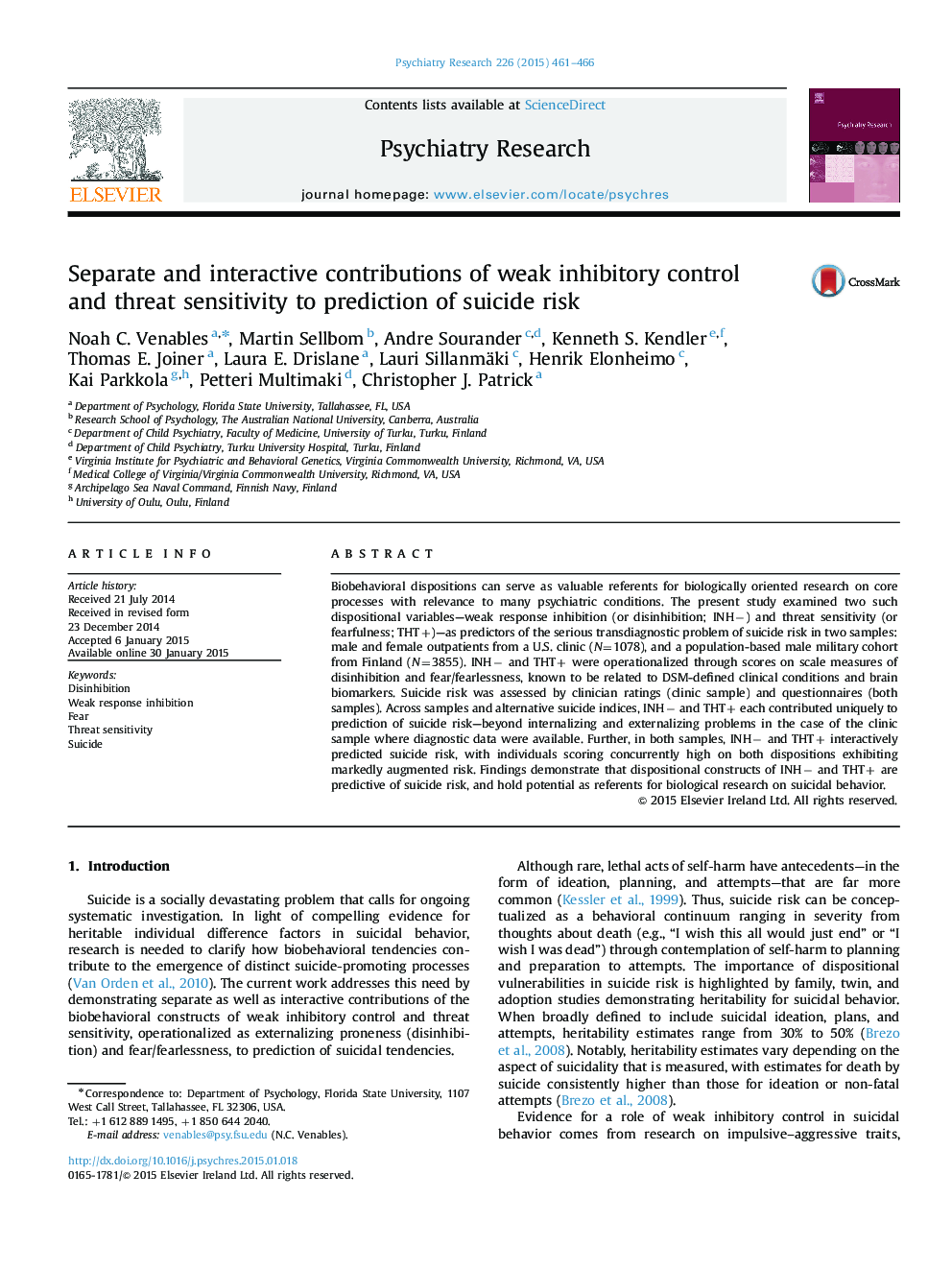| Article ID | Journal | Published Year | Pages | File Type |
|---|---|---|---|---|
| 6814420 | Psychiatry Research | 2015 | 6 Pages |
Abstract
Biobehavioral dispositions can serve as valuable referents for biologically oriented research on core processes with relevance to many psychiatric conditions. The present study examined two such dispositional variables-weak response inhibition (or disinhibition; INHâ) and threat sensitivity (or fearfulness; THT+)-as predictors of the serious transdiagnostic problem of suicide risk in two samples: male and female outpatients from a U.S. clinic (N=1078), and a population-based male military cohort from Finland (N=3855). INHâ and THT+ were operationalized through scores on scale measures of disinhibition and fear/fearlessness, known to be related to DSM-defined clinical conditions and brain biomarkers. Suicide risk was assessed by clinician ratings (clinic sample) and questionnaires (both samples). Across samples and alternative suicide indices, INHâ and THT+ each contributed uniquely to prediction of suicide risk-beyond internalizing and externalizing problems in the case of the clinic sample where diagnostic data were available. Further, in both samples, INHâ and THT+ interactively predicted suicide risk, with individuals scoring concurrently high on both dispositions exhibiting markedly augmented risk. Findings demonstrate that dispositional constructs of INHâ and THT+ are predictive of suicide risk, and hold potential as referents for biological research on suicidal behavior.
Related Topics
Life Sciences
Neuroscience
Biological Psychiatry
Authors
Noah C. Venables, Martin Sellbom, Andre Sourander, Kenneth S. Kendler, Thomas E. Joiner, Laura E. Drislane, Lauri Sillanmäki, Henrik Elonheimo, Kai Parkkola, Petteri Multimaki, Christopher J. Patrick,
